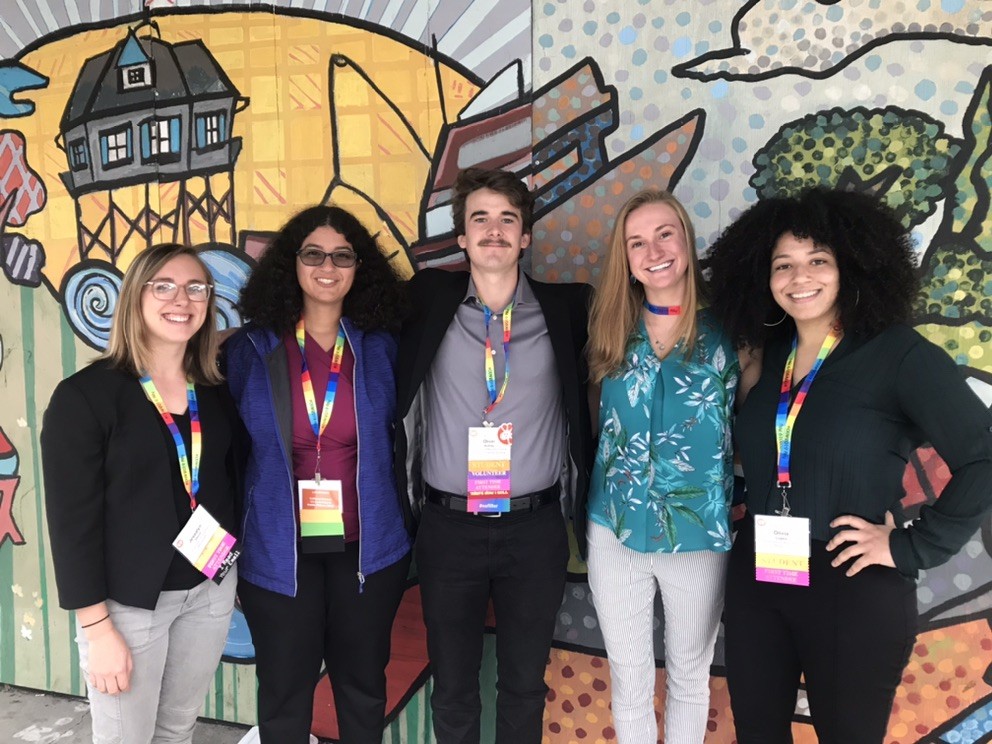Eight students will be presenting the summer work at the Ocean Sciences Meeting in March 2022!
Ivy Hicks, Whitman College
Class Year:
2024Mentor:
Cindy Palinkas, Ph.D.Project Title:
Location and Accumulation of Suspended Oysters’ Biodeposits with Relation to Submersed Aquatic Vegetation BedsAbstract:
As oysters filter water, they produce biodeposits made up of their feces and pseudofeces. There is concern surrounding how suspended oyster farms concentrate biodeposits and the effect that this may have on submersed aquatic vegetation (SAV) health. This study collected sediment push cores between April and June 2024 from an oyster farm in the Choptank River in Maryland. Cores were collected underneath and in between oyster floats as well as slightly offshore from the floats in the SAV bed area. This study found that the mud and organic content underneath the floats is slightly higher in June. Mud and organic content percentages at every site during this study were within the limits for SAV growth. Also, there was a positive linear correlation between mud and organic content with an R2 value of 0.738 in April/May and 0.7479 in June. This study and future research will provide insight on how oyster farms may affect SAV.


